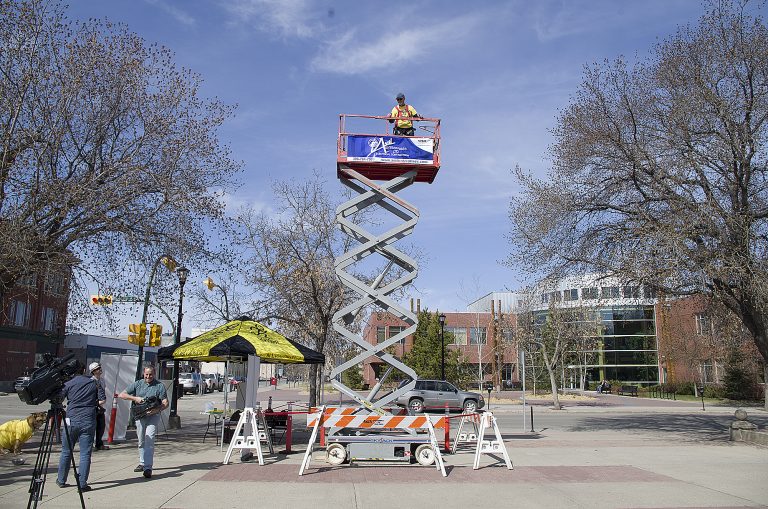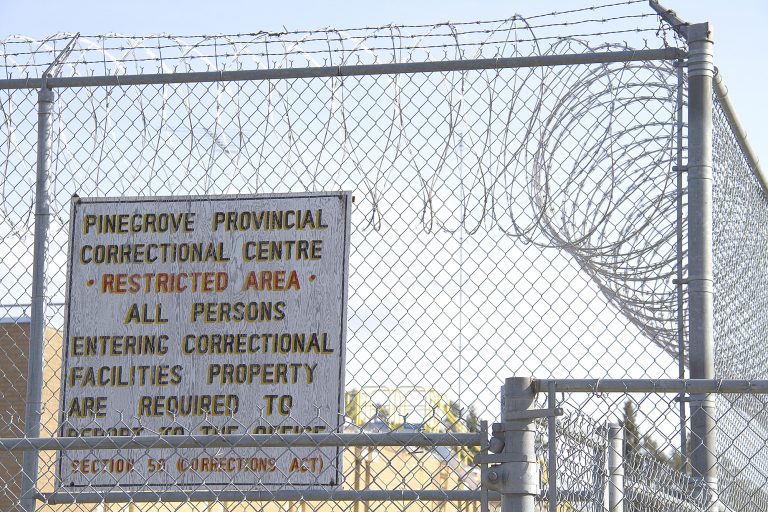On Sunday evening, in an out of the way part of Cornerstone Methodist Church, a few members of the OSI-CAN Support Initiative are quietly celebrating their one-year anniversary.
The weekly support group is a rarity. It’s one of five in Saskatchewan committed to providing an out of the way place for police officers, soldiers, firefighters, corrections officers and medical personnel to discuss incidents that may have led to PTSD or operational stress injury (OSI).
Few support groups in the country bring people from so many diverse careers together in one room, but for organizers, that’s its greatest strength.
“It doesn’t matter if you were a police officer, a firefighter or an ambulance attendant,” Prince Albert group leader Michelle McKeaveney explains. “Some of those traumatic things are the same for each (attendee), and that’s what the room brings. It brings a sense of normality and comfort.”
The provincial initiative itself is fairly new. It only began operations in January 2016, with the Prince Albert chapter starting a few months later.
The weekly meetings are built on a peer support, rather than a clinical support, perspective. They allow attendees to talk about their experiences, either in person or over the phone, with people who’ve gone through similar difficulties, while receiving access to other services like psychosocial rehabilitation or even just basic housing.
Anonymity is of the utmost importance.
“We have rules and we have provisions to make sure that everybody is protected,” says McKeaveney, who worked as a corrections officer before becoming involved in the initiative. “Each peer group and each peer leader satisfies that at the beginning of the meeting.”
McKeaveney and OSI-CAN provincial coordinator say the feedback has been phenomenal. Even tough the group only has one year under their belt, they’re starting to see changes, and that’s true of similar groups in Saskatoon, Regina and Weyburn as well.
“They have hope now,” says Brown, a military veteran who served in the U.S. Army prior to moving to Canada. “They’re seeing that they have the prospect of returning to a normal live and regaining their balance back, and the same thing is echoed by the families.”
Brown comes from a military family. His father fought in the Second World War, while he and two brothers joined the army near the end of the Vietnam War. He also has one son who is a veteran, and one daughter who is still enlisted after 13 years.
He says mental health was something his family never brought up, even PTSD.
“There were indications that there was something there, that there was a problem,” Brown explains. “PTSD did exist, but because it was something that was never talked about, you just continued on with your life. Even after I entered the military and saw it myself, it was still something that wasn’t spoken about. You just soldiered on.”
Brown says there is a “self-stigma” where a lot of individuals can’t acknowledge that they need help.
Fortunately things are starting to change, especially in Prince Albert. McKeaveney says employers in the city are starting to take the issue of mental and emotional health seriously, and that’s having positive consequences.
However, there are still a few challenges ahead. The Prince Albert OSI-CAN group is financially supported solely by an anonymous donor, but that funding is set to expire in 2018.
They’ll be looking for new ways to keep the program growing, which has provided an important start for those suffering from OSI and PTSD.
They also want to expand from five groups to eight by the end of the year, but on Sunday, it’s a night for celebration.
“It’s truly amazing,” Brown says. “It’s what gets me up in the morning.”
The Prince Albert chapter of OSI-CAN meets every week for two hours at Cornerstone Methodist Church. For more information, call Michelle at 306-922-3113 or 306-981-6083.
Residents can also access the phone-in support group every Thursday at 2 p.m. by calling 1-888-289-4573, access code 6325824.
A PTSD/OSI Awareness Conference will also be held from Sept. 29 to Oct. 1 at the Prince Albert Inn. Registration is $75 per person, prior to Sept. 1. Contact Karyn at 306-961-8231 for more information.
@kerr_jas • jason.kerr@paherald.sk.ca









